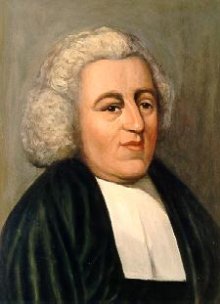 |
| John Newton, who penned "Amazing Grace" |
Am I carrying the genes of someone who captured Africans, transported them to the American continent, and sold them as a commodity?
If so, should I end the survival of that evil person's genes? His goal was survival and wealth, and perhaps I am one in the chain of those who keep his race and identity alive, one of those who profit from his gain.
But my children too carry those genes... My own suicide would not end the successful transmission of those genes.
My great-grandfather, Herschel Brown, was born in 1859 into a family that owned a few slaves in northern Georgia near Hiawassee. His parents or their parents bought African Americans and perhaps sold them.
How far back does that trafficking in humans go? Am I the descendant of slave traders who forced humans into chains and ships? Does my blood perpetuate the life of those who shed human blood for their own profit?
I am complicit in slavery and human trafficking, no matter how you dice it.
John Newton, who was born in 1725 and penned the lyrics of "Amazing Grace" in 1772 at the age of 47, was a slave trader turned priest who eventually abjured slavery and influenced Great Britain's ending of slave trade in 1807.
It was not until 1788, 34 years after leaving it that he renounced his former slaving profession by publishing a blazing pamphlet called “Thoughts Upon the Slave Trade.” The tract described the horrific conditions on slave ships and Newton apologized for making a public statement so many years after participating in the trade: “It will always be a subject of humiliating reflection to me, that I was once an active instrument in a business at which my heart now shudders.”
Like Newton, perhaps the best I can do is to confess myself to be a wretch, repent, and try to make amends.
No comments:
Post a Comment